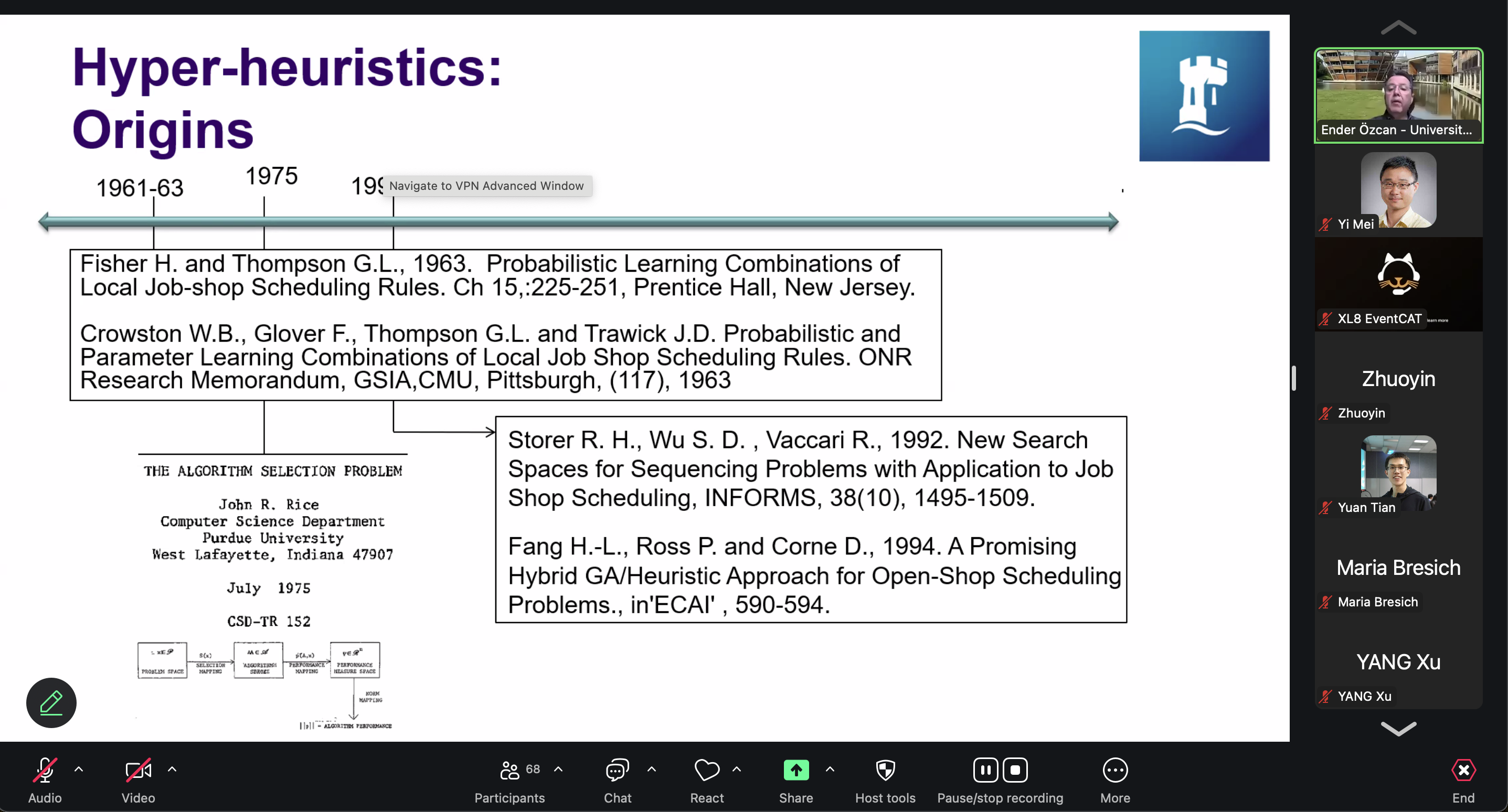

Speaker: Ender Özcan, University of Nottingham, UK
Date: 4 November 2024
Time: 9:00 - 10:00am (UK Time, UTC+0)

Ender Özcan is a Professor of Computer Science and Operational Research with the Computational Optimisation and Learning (COL) Lab research group in the School of Computer Science at the University of Nottingham. His research interests and activities lie at the interface of Computer Science, Artificial Intelligence and Operational Research. Prof Özcan carries out multi-disciplinary research into intelligent systems that can automatically aid the design and implementation of more efficient, effective, reusable, easier-to-implement/deploy/use general computational search methods, applicable to a range of real-world problems. He is a Senior Member of IEEE, an elected member of the EPSRC, and College Research Foundation - Flanders (FWO) Peer Review College. Prof. Özcan has contributed to funded projects worth over £14.3M, supported by funding bodies such as EPSRC, the European Commission, The Royal Society, TSB, Innovate UK, and TUBITAK. He is a co-founder and co-chair of the EURO Working Group on Data Science Meets Optimisation. He is Chair of the International Conference Series on the Practice and Theory of Automated Timetabling (PATAT). Prof Özcan is Associate Editor of the Journal of Scheduling and Engineering Applications of Artificial Intelligence (EAAI) Journal.
Hyper-heuristics encompass a range of approaches that facilitate the automated design of computational search methods. The current state-of-the-art in hyper-heuristic research includes various classes of algorithms focused on intelligently selecting or generating suitable heuristics for solving specific computationally challenging optimisation problems. A selection hyper-heuristic controls a set of low-level heuristics, determining which one to apply to create a new solution and then whether to accept or reject that solution at each iteration during the search. On the other hand, automatically generating new heuristics that are suited to a given problem is typically accomplished using primitive components or by analysing observed search trails of existing algorithms. In this talk, we will provide a brief overview of hyper-heuristics and present a case study demonstrating the application of machine learning to automatically design more effective selection hyper-heuristics.
The Webinar went very successful, with ~70 participants.
The video recording of the Webinar can be found here.
The slides of the Webinar can be found here.

Back to the Webinar Series